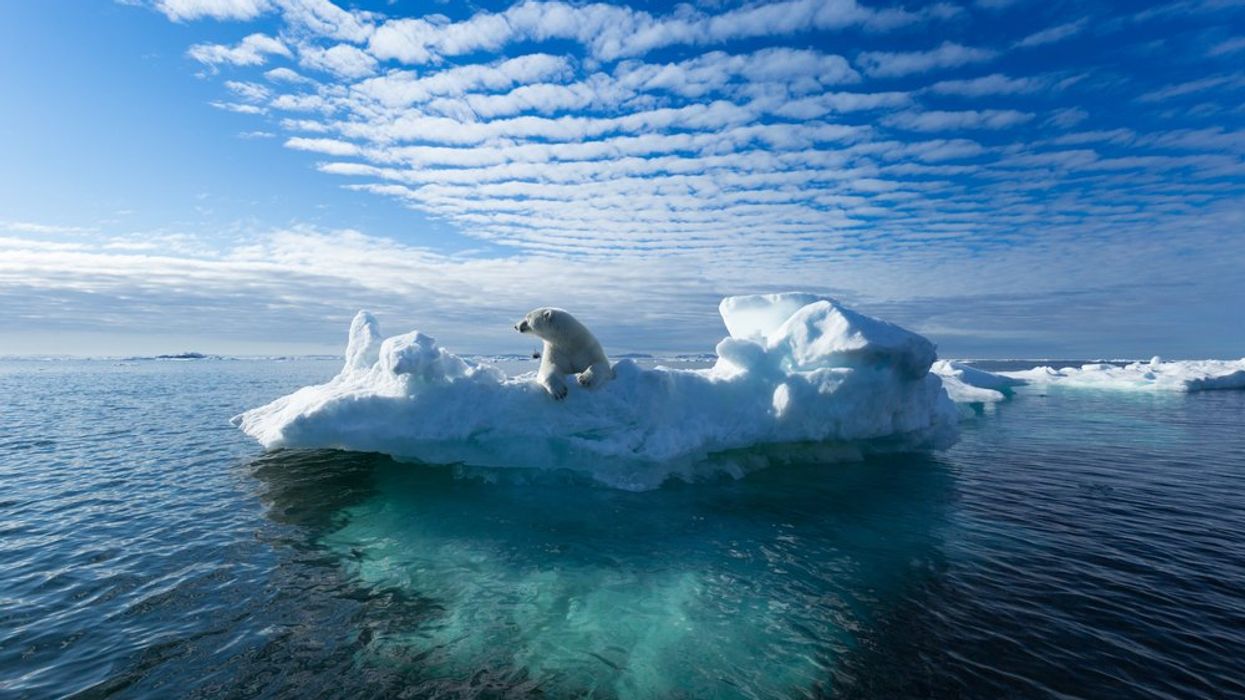Since 2007, arctic ice has drastically decreased, and new research suggests the damage may be irreversible.
Scientists at the Norwegian Polar Institute have been tracking ice levels for decades. In 2007, levels fell to an unprecedented low, with ice coverage shrinking by 38 percent. This has since ushered in a "new regime" of ice that is thin and young, and therefore not as durable.
“You’re in a new situation, a new equilibrium, where you can’t easily get back to where you were,” Walt Meier, a senior research scientist at the University of Colorado at Boulder, told The Washington Post. “They make a pretty good case and put together a lot of data to say, yes, there is a fundamental change and we’re in this new regime."
Loss of ice leads to loss of habitat for arctic wildlife, and changes the climate of not just the arctic, but the entire planet. Whereas thick ice is able to reflect the sun's rays, thin ice absorbs more heat. Ice reflecting heat plays a major role in determining Earth's average temperatures, a phenomenon known as the albedo effect.
The study contributes ice melt to increased temperatures caused by human-caused greenhouse gas emissions, which "demonstrates the long-lasting impact of climate change on Arctic sea ice."
It is usually difficult to predict what changes to arctic ice will occur, as different types of ice play certain roles in the ecosystem. However, the "new regime" has also undiversified the types of ice that are able to form, meaning these losses could be incredibly difficult to reverse.
Though some researchers have taken issue with the study's conclusion that the ice melt is likely irreversible. Harry Stern, a sea ice researcher at the University of Washington, said that ice will always be able to form, so long as climate change is meaningfully addressed.
“I’m not convinced that it’s irreversible,” he said. “If you reverse the conditions, you could reverse the changes in the ice thickness.”
The study does account for the possibility of reversal, but notes that it is incredibly unlikely in the face of a lackluster global effort to curtail emissions. However, even if emission rates fell to zero, it would still take decades for the ocean to cool.
“Since ocean heat content in the sea ice formation areas ... has increased, we suggest that the changes are irreversible at least with current climate," the authors said.
- Polar Bear Attacks May Be Linked to Climate Change, Experts Say ›
- Half of Earth's Glaciers Will Melt By End of Century, Study Finds ›
- Melting Glaciers Are the Next Major Consequence of Climate Change | AdvocateChannel.com ›
- It's Too Late to Stop Arctic Sea Ice From Melting in Summer ›



















































